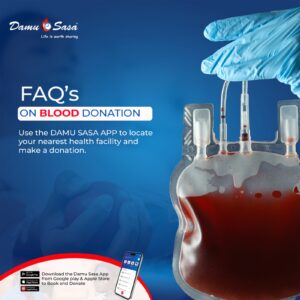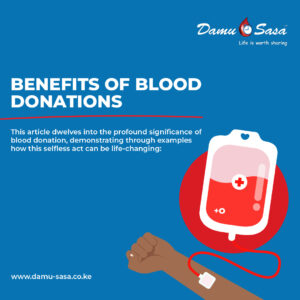Blood donation is a noble act that helps save the lives of patients. However, potential blood donors sometimes have concerns about how to proceed. This two-part series will walk you through some of the most common. The main aim is to empower you to approach blood donation with confidence. For this first series, we will discuss the precautions to take before donating blood. Here we go:
- Blood Donation Eligibility Criteria
Before donating blood, it is important to familiarize yourself with the standard blood donation eligibility criteria — put in place for both your safety as a blood donor and for the patient who may be the recipient of your blood. Here are some of them:
- Be between 16 and 65 years of age;
- Weigh at least 50kg;
- Be generally healthy;
- Proper Hydration and Nutrition
It also helps to be well-hydrated before going to donate blood — drink enough water at least a day before the blood donation. This makes it easier for your body to deal with the sudden loss of blood volume after a blood donation. In addition, consuming foods rich in iron such as spinach, red meat, and beans also helps your body regenerate new red blood cells lost after donating blood. Collectively, these two precautions on hydration and nutrition have a significant impact on the quality and quantity of blood one can donate.
- Avoid Alcohol and Smoking
It’s recommended to avoid alcohol and nicotine products before donating blood. Alcohol acts as a diuretic. It promotes increased fluid expulsion through urine. That may lead to dehydration, which reduces blood volume and can hinder blood donation. Smoking, on the other hand, can impair the blood’s ability to carry oxygen. This could hurt the quality of donated blood. It is thus advisable to stay off such products for at least 24 hours before donating blood.
- Get Adequate Rest
Ensuring you are well-rested is crucial before donating blood. Fatigue can lead to dizziness or lightheadedness during or after the donation process. Getting enough rest also directly impacts your physical and mental well-being during the blood donation process and helps to ensure a safe and successful experience. It is thus recommended to get at least seven hours of decent sleep the night before a blood donation exercise.
- Bring Identification and Relevant Documents
Most blood donation centers require some form of identification for every blood donor. This can be a driver’s license, passport, or any government-issued ID. Having these documents in advance will facilitate a quicker registration procedure. You will also be required to fill in a standard but brief questionnaire specifically meant to gauge your eligibility for blood donation. It is important to answer it truthfully as this directly has an impact on your well-being during the blood donation exercise.
- Wear Comfortable Clothing
It is recommended to wear sleeves that are loose-fitting and easy to roll up. This makes the procedure of donating blood much easier and comfortable for the blood donor. This, in turn, contributes to a successful and positive blood donation experience.
*****
We hope the information above puts you well on your way to donating blood to help save lives. Kindly click on this link for the second part of the series — what to do after a blood donation exercise.
Part of our work as Damu Sasa is to empower blood donors with the necessary information useful for blood donation and by so doing, we help spur more voluntary blood donations. Please help us spread the knowledge by sharing this article on your networks. We invite you to join our community and learn more about blood donation by downloading our app from either the Google Play Store for Android or the Apple App Store for iOS.
![]()







